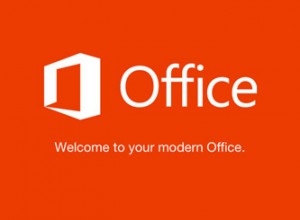 Studentegetalle het oor die afgelope paar jare met rasse skrede toegeneem en daarmee saam die behoefte vir meer e-pos stoorspasie. Tot hede is alle studente se e-pos gehuisves op die universiteit se bedieners, maar die spasie is besig om uit te loop.
Studentegetalle het oor die afgelope paar jare met rasse skrede toegeneem en daarmee saam die behoefte vir meer e-pos stoorspasie. Tot hede is alle studente se e-pos gehuisves op die universiteit se bedieners, maar die spasie is besig om uit te loop.
Sedert verlede jaar ondersoek Informasietegnologie moontlike oplossings vir die probleem en die gevolgtrekking is dat Office 365 die beste keuse vir studente e-posse in die nabye toekoms sal wees.
MS Office en Microsoft bedryfstelsels word reeds gebruik in studente rekenaargebruiksareas en sal gevolglik maklik kan integreer met bestaande tegnologie.
Hierdie projek is tans nog in die beplanningsfase, maar Microsoft se gratis Office 365-diens sal binnekort implementeer word en alle studente e-posse sal gedurende 2014 na die “cloud” geskuif word.
*Neem kennis dat Office 365 op die stadium nie geinstalleer sal word op US-personeel se rekenaars nie. Office 2010 bly steeds die goedgekeurde sagteware vir gebruik op kampus.*


This is an alarming step in the wrong direction. There are numerous privacy, licencing and so-called “intellectual property” issues with cloud computing (and also cloud based e-mail).
Has this proposal been approved by the IP office? Quoting from an article about a recent data seizure case in the US (https://www.eff.org/deeplinks/2012/10/governments-attack-cloud-computing; accessed on 31/01/2014): “The government maintains that Mr. Goodwin lost his property rights in his data by storing it on a cloud computing service.”
Another example from Google’s terms of service with regards to their cloud based services (http://www.google.com/intl/en/policies/terms/; accessed on 31/01/2014): “When you upload or otherwise submit content to our Services, you give Google (and those we work with) a worldwide license to use, host, store, reproduce, modify, create derivative works (such as those resulting from translations, adaptations or other changes we make so that your content works better with our Services), communicate, publish, publicly perform, publicly display and distribute such content. The rights you grant in this license are for the limited purpose of operating, promoting, and improving our Services, and to develop new ones. This license continues even if you stop using our Services (for example, for a business listing you have added to Google Maps). Some Services may offer you ways to access and remove content that has been provided to that Service. Also, in some of our Services, there are terms or settings that narrow the scope of our use of the content submitted in those Services. Make sure you have the necessary rights to grant us this license for any content that you submit to our Services.”
How would this proposed move to cloud based e-mail impact copyright on work produced by students and staff at the university?
I would just like to know the implications of this on Mac and Linux users in Stellenbosch.